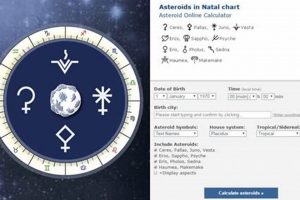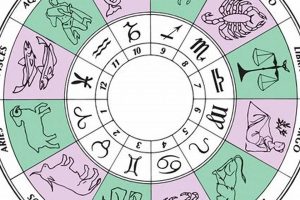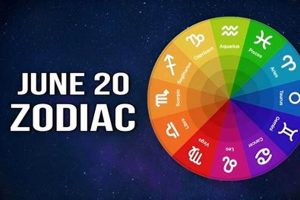In astrology, Juno represents commitment, marriage, partnerships, and the balance of power within relationships. It symbolizes the contracts we make with others, both personally and professionally, highlighting the dynamics of give-and-take. For example, its placement in a birth chart can offer insights into an individual’s approach to long-term relationships and the qualities they seek in a partner.
Understanding this asteroids influence can provide valuable self-awareness regarding relationship patterns, revealing potential strengths and challenges in creating and maintaining lasting bonds. Historically, Juno, named after the Roman goddess of marriage and childbirth, adds another layer of depth to astrological interpretations beyond traditional planetary influences. Its placement can illuminate where one seeks devotion, loyalty, and fairness in partnerships, offering guidance for navigating relational complexities.
This understanding can be applied to various aspects of committed relationships, from romantic entanglements and business partnerships to family dynamics and social contracts. Further exploration will delve into the specifics of Juno’s placement in the signs and houses, as well as its interaction with other celestial bodies.
Tips for Understanding Juno’s Influence
These tips offer practical guidance for interpreting the influence of Juno in astrological charts.
Tip 1: Examine Juno’s Sign Placement: Juno’s zodiac sign reveals how one approaches commitment and the qualities sought in a partner. For example, Juno in Aries suggests a desire for independence within partnerships, while Juno in Libra emphasizes harmony and balance.
Tip 2: Consider Juno’s House Placement: The house Juno occupies indicates the area of life where commitment and partnerships are most significant. Juno in the seventh house, for instance, highlights the importance of marriage and long-term relationships.
Tip 3: Analyze Juno’s Aspects: Planetary aspects to Juno further refine its expression. A harmonious aspect from Venus might indicate ease in attracting committed relationships, whereas a challenging aspect from Saturn could suggest difficulties or delays.
Tip 4: Compare Juno to Other Relationship Indicators: Consider Juno in conjunction with Venus and Mars to gain a comprehensive understanding of one’s relational dynamics. Venus represents love and attraction, while Mars represents passion and desire.
Tip 5: Reflect on Past Relationships: Examining past relationship patterns can offer valuable insights into Juno’s influence. Consider the themes of commitment, compromise, and power dynamics in previous partnerships.
Tip 6: Use Juno for Self-Awareness, Not Prediction: While Juno can offer valuable insights, it’s essential to avoid deterministic interpretations. Astrology provides a framework for understanding oneself, not a script for the future.
Tip 7: Consult with a Qualified Astrologer: For a more personalized and in-depth analysis, consulting with a qualified astrologer is recommended. They can provide tailored guidance based on the entirety of a birth chart.
By understanding Juno’s influence, individuals can gain valuable insights into their relationship patterns, strengths, and challenges. This knowledge empowers one to navigate partnerships with greater awareness and create more fulfilling, balanced connections.
This analysis of Juno provides a foundational understanding of its significance in astrology. Further exploration can delve into specific case studies and more advanced interpretive techniques.
1. Commitment
Within the framework of astrological interpretation, Juno signifies commitment, offering insights into how individuals approach and experience long-term relationships. Understanding this asteroid’s influence sheds light on the dynamics of partnerships and the pursuit of lasting bonds.
- The Nature of Commitment
Juno represents the essence of commitment itself, encompassing the dedication, loyalty, and shared responsibility inherent in enduring relationships. This can manifest as a desire for marriage, a commitment to business partnerships, or a dedication to social causes. For example, a prominent Juno placement might indicate a strong inclination towards establishing and maintaining committed relationships across various life domains.
- The Terms of Commitment
Juno also highlights the specific terms and conditions individuals seek within committed relationships. This encompasses the balance of power, the division of responsibilities, and the mutual expectations held between partners. Juno’s placement can reveal whether one prefers equal partnerships or more traditional roles. For instance, Juno in Aquarius might suggest a preference for unconventional partnerships based on shared values and intellectual connection.
- The Challenges of Commitment
Juno doesn’t shy away from the challenges inherent in commitment. It reveals potential areas of conflict, power struggles, and the need for compromise. Its placement can indicate where individuals might encounter difficulties in maintaining long-term relationships. For example, a challenging aspect to Juno might suggest a tendency towards jealousy or possessiveness.
- The Evolution of Commitment
Juno’s influence extends beyond the initial stages of commitment, reflecting the evolution and growth within relationships over time. It highlights the importance of adaptation, communication, and ongoing negotiation to maintain a healthy, balanced partnership. Juno’s placement can offer insights into how individuals navigate the changing dynamics of long-term relationships, signifying the potential for growth and transformation within the partnership.
By understanding Juno’s multifaceted influence on commitment, individuals gain valuable self-awareness regarding their relationship patterns and the dynamics they seek in lasting bonds. This knowledge empowers one to navigate partnerships with greater understanding and build more fulfilling connections based on shared values, mutual respect, and a conscious commitment to growth.
2. Marriage
Within astrological interpretations, Juno’s significance extends beyond general partnerships to hold a particular relevance to marriage. This celestial body represents the legal and spiritual union between two individuals, highlighting the dynamics of commitment, shared responsibility, and the ongoing negotiation inherent in long-term marital bonds. Juno’s placement in a birth chart offers insights into an individual’s approach to marriage, the qualities sought in a spouse, and the potential challenges or strengths one brings to the marital dynamic. For instance, a strongly aspected Juno in the 7th house often signifies a deep-seated desire for a committed, legally recognized partnership. Conversely, a challenging aspect to Juno, such as a square from Saturn, might suggest potential difficulties or delays in finding or maintaining a marriage. Real-life examples, though anecdotal, abound in astrological consultations, where Juno’s placement often correlates with observable patterns in clients’ marital experiences.
Further analysis reveals that Juno’s influence in marriage extends beyond the initial vows. Its placement can illuminate the areas where compromise and negotiation are most crucial for maintaining a healthy marital dynamic. For example, Juno in Libra often suggests a need for balance and harmony within the marriage, while Juno in Aries might indicate a desire for independence and individual expression within the partnership. Understanding these nuances allows individuals to address potential challenges proactively and cultivate a more fulfilling marital experience. This understanding also has practical significance in pre-marital counseling, offering potential insights for couples navigating the complexities of long-term commitment. The placement of Juno in synastry, the comparison of two individuals’ birth charts, can further illuminate the dynamics at play within a specific marital relationship, highlighting potential areas of harmony or conflict.
In summary, Juno serves as a significant indicator of marital dynamics within astrological interpretations. Its placement offers valuable insights into an individual’s approach to marriage, potential strengths and weaknesses within the partnership, and the areas requiring ongoing attention and compromise. While challenges may arise, understanding Juno’s influence provides a framework for navigating these complexities and fostering a more conscious, fulfilling marital union. This knowledge allows individuals to leverage astrological insights for greater self-awareness and relationship growth, ultimately contributing to stronger, more resilient marital bonds.
3. Partnerships
Juno, in astrological terms, signifies the dynamics of partnerships, encompassing both the opportunities and challenges inherent in shared endeavors. Its placement in a birth chart illuminates an individual’s predisposition towards various partnership styles, revealing potential strengths and weaknesses in navigating collaborative relationships. Juno’s influence extends beyond romantic partnerships to include business collaborations, familial connections, and even platonic friendships. Its position can indicate the types of partnerships one attracts, the balance of power sought within these relationships, and the potential for growth or conflict. For example, Juno in Capricorn might suggest a preference for partnerships based on mutual ambition and practical goals, while Juno in Pisces might indicate a tendency towards more compassionate and emotionally supportive partnerships.
Further analysis reveals the cause-and-effect relationship between Juno’s placement and partnership experiences. Individuals with Juno in Aries, for instance, might experience a recurring theme of asserting independence within partnerships, sometimes leading to power struggles if not consciously addressed. Conversely, those with Juno in Libra may prioritize harmony and balance, potentially leading to conflict avoidance or suppressed needs if not carefully navigated. Real-life examples illustrate these patterns, with individuals often recognizing recurring themes in their partnerships once they understand Juno’s influence in their birth chart. This understanding offers practical significance, providing self-awareness that can lead to more conscious choices in partnership selection and more effective communication within existing relationships. Astrological consultations often leverage this understanding to guide clients in navigating partnership challenges and fostering more fulfilling collaborative experiences.
In summary, Juno’s connection to partnerships offers valuable insights into an individual’s relational predispositions and potential challenges. Understanding this asteroid’s influence empowers individuals to approach partnerships with greater awareness, facilitating more conscious choices and fostering healthier, more balanced dynamics. This knowledge contributes to a deeper comprehension of the astrological landscape and its practical application in navigating the complexities of human relationships.
4. Balance of Power
Within the framework of astrological interpretation, Juno’s significance extends to the concept of balance of power within relationships. This asteroid illuminates how individuals perceive and negotiate power dynamics in partnerships, revealing potential areas of conflict or harmony. Understanding Juno’s influence in this context provides valuable insights into an individual’s expectations regarding equality, fairness, and shared responsibility within relationships. It highlights the interplay between autonomy and interdependence, offering a nuanced perspective on navigating the complexities of shared power.
- Equality vs. Equity
Juno’s placement can reveal whether an individual seeks strict equality or a more nuanced form of equity within partnerships. For example, Juno in Libra might emphasize the importance of equal sharing of responsibilities and decision-making, whereas Juno in Virgo could suggest a focus on equitable contributions based on individual strengths and circumstances. This distinction highlights the complexity of power dynamics and the potential for conflict when expectations regarding equality and equity are misaligned.
- Negotiating Control
Juno’s influence extends to how individuals negotiate control within partnerships. Its placement can indicate whether one tends to relinquish control, assert dominance, or seek a collaborative approach to decision-making. For instance, Juno in Scorpio might suggest a tendency towards controlling behaviors, while Juno in Pisces could indicate a greater willingness to yield control. Understanding these tendencies allows for greater self-awareness and more conscious negotiation of control within relationships.
- Resentment and Imbalance
Juno’s placement can also illuminate potential areas of resentment stemming from perceived power imbalances. An afflicted Juno, for example, might indicate a tendency towards feeling overlooked or undervalued within partnerships. Conversely, a well-aspected Juno can contribute to a sense of fairness and mutual respect, fostering a more harmonious balance of power. Recognizing these potential pitfalls allows for proactive measures to address imbalances and mitigate resentment.
- Evolution of Power Dynamics
Juno’s influence on power dynamics is not static; it evolves alongside the relationship itself. As partnerships mature, so too does the negotiation of power. Juno’s placement can offer insights into how individuals adapt to shifting power dynamics over time, indicating the potential for growth, compromise, and the establishment of a more equitable and sustainable balance of power.
In conclusion, Juno’s connection to the balance of power within relationships provides valuable insights into an individual’s approach to shared responsibility, control, and fairness. This understanding empowers individuals to navigate partnership dynamics with greater awareness, fostering healthier, more equitable, and ultimately more fulfilling relationships. This deeper understanding of Juno enhances the overall interpretation of astrological charts, offering a nuanced perspective on the complexities of human interaction.
5. Long-Term Bonds
Juno, in astrology, holds significant relevance to the formation and maintenance of long-term bonds. This asteroid provides insights into the dynamics of commitment, revealing how individuals approach and experience lasting connections in various relationship contexts, from romantic partnerships and marriages to familial ties and enduring friendships. Juno’s placement in a birth chart can illuminate the strengths and challenges one brings to long-term bonds, offering valuable self-awareness for navigating the complexities of enduring relationships.
- The Nature of Commitment
Juno represents the fundamental desire for commitment, signifying the drive to establish lasting connections. Its placement can indicate the areas of life where individuals prioritize long-term bonds, whether in romantic relationships, family life, or professional collaborations. For example, a prominent Juno in the 4th house might suggest a strong emphasis on family bonds and creating a stable home environment. Conversely, Juno in the 10th house might indicate a focus on establishing long-term professional alliances and building a lasting legacy.
- Sustaining Commitment
Juno’s influence extends beyond the initial formation of bonds, offering insights into the factors that contribute to their longevity. Its placement can reveal the strengths and challenges individuals face in sustaining long-term commitments. For instance, Juno in Taurus might suggest a steadfast and enduring approach to relationships, while Juno in Gemini could indicate a need for continuous stimulation and communication to maintain interest. Real-life examples might include individuals with Juno in Capricorn demonstrating a practical and responsible approach to sustaining long-term commitments, while those with Juno in Sagittarius might prioritize shared adventures and intellectual exploration to keep the bond vibrant.
- Navigating Challenges
Long-term bonds inevitably encounter challenges. Juno’s placement can illuminate potential areas of conflict and provide insights into how individuals navigate these difficulties. For example, Juno in Scorpio might indicate a tendency towards jealousy or possessiveness, while Juno in Aquarius could suggest a resistance to traditional relationship structures. These predispositions can manifest in real-life scenarios, such as individuals with Juno in Aries struggling with compromise or those with Juno in Cancer needing strong emotional security within long-term bonds. Understanding these tendencies allows for proactive measures to address potential challenges and foster more resilient relationships.
- Evolution and Growth
Long-term bonds are not static; they evolve over time. Juno’s placement can offer insights into how individuals adapt to change and foster growth within enduring relationships. For example, Juno in Virgo might suggest a focus on continuous improvement and refinement within long-term bonds, while Juno in Pisces could indicate a tendency towards merging identities and spiritual growth within the partnership. Real-life examples might include individuals with Juno in Leo seeking recognition and appreciation within long-term relationships, while those with Juno in Libra prioritize maintaining harmony and balance as the bond evolves.
In conclusion, Juno’s influence on long-term bonds offers valuable insights into an individual’s capacity for commitment, the challenges they may face, and the potential for growth and evolution within enduring relationships. Understanding Juno’s placement provides a deeper comprehension of the astrological factors that contribute to the strength and resilience of long-term connections, offering valuable self-awareness for navigating the complexities of lasting partnerships, marriages, familial ties, and enduring friendships.
Frequently Asked Questions about Juno in Astrology
This section addresses common inquiries regarding Juno’s astrological significance, offering clarity and dispelling potential misconceptions.
Question 1: How does Juno differ from Venus in astrological interpretations?
While Venus represents romantic attraction and the experience of love, Juno signifies the commitment and legal bonds of partnership. Venus attracts, while Juno binds.
Question 2: Does Juno’s placement guarantee marriage?
Juno’s placement does not guarantee marriage. It indicates predispositions towards commitment and the qualities one seeks in a long-term partner. Realization of marriage depends on numerous factors beyond astrological placements.
Question 3: How does Juno relate to divorce?
Juno’s placement can offer insights into potential challenges within marriage, but it doesn’t predict divorce. A challenging aspect to Juno might suggest areas requiring attention and compromise to maintain a healthy partnership.
Question 4: Can Juno’s influence be felt outside of romantic relationships?
Juno’s influence extends to all forms of partnerships, including business collaborations, familial relationships, and close friendships. It represents the dynamics of commitment and shared responsibility in any long-term bond.
Question 5: How can one work with Juno’s energy constructively?
Understanding Juno’s placement allows for greater self-awareness regarding relationship patterns and potential challenges. This awareness empowers individuals to make more conscious choices and navigate partnerships with greater understanding.
Question 6: Is Juno more important than other astrological placements regarding relationships?
Juno offers valuable insights into relationship dynamics, but it’s essential to consider the entire birth chart for a comprehensive understanding. All astrological placements contribute to a nuanced perspective on an individual’s relational patterns.
Understanding Juno’s influence provides valuable self-awareness regarding one’s approach to commitment, partnerships, and the balance of power within relationships. This knowledge empowers individuals to navigate relational dynamics with greater consciousness and build more fulfilling connections.
Further exploration can delve into specific examples of Juno’s placement in different signs and houses, offering more tailored insights into its nuanced expressions.
Juno in Astrology
This exploration of Juno in astrology has revealed its significance as an indicator of commitment, partnerships, marriage, and the balance of power within relationships. Its placement in a birth chart offers valuable insights into an individual’s approach to long-term bonds, highlighting potential strengths, challenges, and the dynamics they seek in shared endeavors. From understanding the nature of commitment to navigating the complexities of power dynamics and fostering enduring connections, Juno provides a framework for comprehending relational patterns.
Astrological study of Juno empowers individuals to cultivate greater self-awareness and navigate relationships with increased consciousness. Through this understanding, one can foster healthier dynamics, address potential challenges proactively, and build more fulfilling, balanced partnerships. Further research and personalized chart analysis offer opportunities for continued exploration and deeper understanding of Juno’s nuanced influence in individual lives and relational landscapes.







